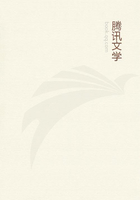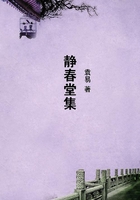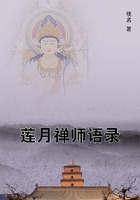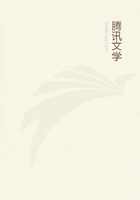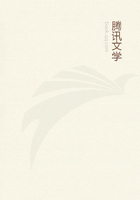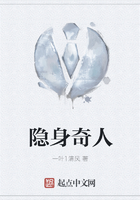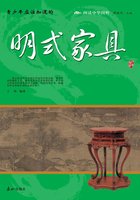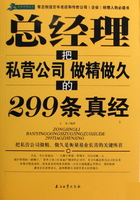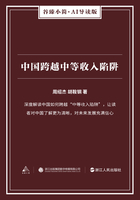Contemporary history, no doubt, was written far better in the language of the day than when forced into Latin.Whether Italian was also more suitable for the narrative of events long past, or for historical research, is a question which admits, for that period, of more answers than one.Latin was, at that time, the 'Lingua franca' of instructed people, not only in an international sense, as a means of intercourse between Englishmen, Frenchmen, and Italians, but also in an interprovincial sense.The Lombard, the Venetian, and the Neapolitan modes of writing, though long modelled on the Tuscan, and bearing but slight traces of the dialect were still not recognized by the Florentines.This was of less consequence in local contemporary histories, which were sure of readers at the place where they were written, than in the narratives of the past, for which a larger public was desired.In these the local interests of the people had to be sacrificed to the general interests of the learned.How far would the influence of a man like Biondo of Forli have reached if he had written his great monuments of learning in the dialect of the Romagna? They would have assuredly sunk into neglect, if only through the contempt of the Florentines, while written in Latin they exercised the profoundest influence on the whole European world of learning.And even the Florentines in the fifteenth century wrote Latin, not only because their minds were imbued with humanism, but in order to be more widely read.
Finally, there exist certain Latin essays in contemporary history which stand on a level with the best Italian works of the kind.When the continuous narrative after the manner of Livy--that Procrustean bed of so many writers is abandoned, the change is marvelous.The same Platina and Giovio, whose great histories we only read because and so far as we must, suddenly come forward as masters in the biographical style.We have already spoken of Tristano Caracciolo, of the biographical works of Fazio and of the Venetian topography of Sabellico, and others will be mentioned in the sequel.
The Latin treatises on past history were naturally concerned, for the most part, with classical antiquity.What we are most surprised to find among these humanists are some considerable works on the history of the Middle Ages.The first of this kind was the chronicle of Matteo Palmieri (449-1449), beginning where Prosper Accedence ceases.On opening the 'Decades' of Biondo of Forli, we are surprised to find a universal history, 'ab inclinatione Romanorum imperii,' as in Gibbon, full of original studies on the authors of each century, and occupied, through the first 300 folio pages, with early mediaeval history down to the death of Frederick II.And this when in Northern countries nothing more was current than chronicles of the popes and emperors, and the 'Fasciculus temporum.' We cannot here stay to show what writings Biondo made use of, and where he found his materials, though this justice will some day be done to him by the historians of literature.This book alone would entitle us to say that it was the study of antiquity which made the study of the Middle Ages possible, by first training the mind to habits of impartial historical criticism.To this must be added, that the Middle Ages were now over for Italy, and that the Italian mind could the better appreciate them, because it stood outside them.It cannot, nevertheless, be said that it at once judged them fairly, let alone with piety.In the arts a strong prejudice established itself against all that those centuries had created, and the humanists date the new era from the time of their own appearance.'I begin,' says Boccaccio, 'to hope and believe that God has had mercy on the Italian name, since I see that His infinite goodness puts souls into the breasts of the Italians like those of the ancients souls which seek fame by other means than robbery and violence, but rather on the path of poetry, which makes men immortal.' But this narrow and unjust temper did not preclude investigation in the minds of the more gifted men, at a time, too, when elsewhere in Europe any such investigation would have been out of the question.A historical criticism of the Middle Ages was practicable, just because the rational treatment of all subjects by the humanists had trained the historical spirit.In the fifteenth century this spirit had so far penetrated the history even of the individual cities of Italy that the stupid fairy tales about the origin of Florence, Venice, and Milan vanished, while at the same time, and long after, the chronicles of the North were stuffed with this fantastic rubbish, destitute for the most part of all poetical value, and invented as late as the fourteenth century.
The close connection between local history and the sentiment of glory has already been touched on in reference to Florence.Venice would not be behindhand.Just as a great rhetorical triumph of the Florentines would cause a Venetian embassy to write home posthaste for an orator to be sent after them, so too the Venetians felt the need of a history which would bear comparison with those of Leonardo Aretino and Poggio.
And it was to satisfy this feeling that, in the fifteenth century, the 'Decades' of Sabellico appeared, and in the sixteenth the 'Historia rerum Venetarum' of Pietro Bembo, both written at the express charge of the republic, the latter a continuation of the former.

